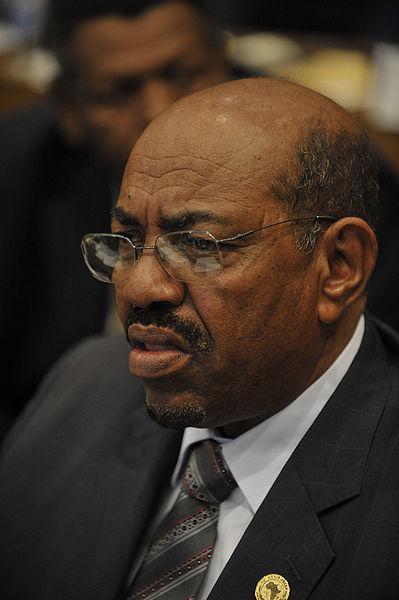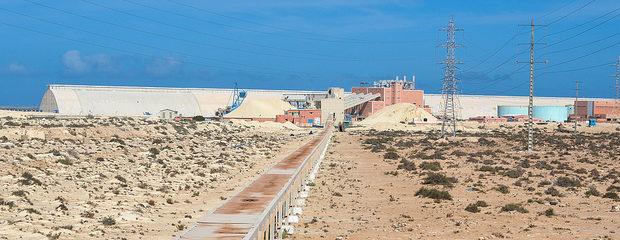Misconceptions I – The ICC and the Truth Justice and Reconciliation Commission (TJRC)
This article is part of a debate organized by Oxford Transitional Justice Research (OTJR) in collaboration with Moi University (Eldoret) and Pambazuka News. A selection of essays based on this debate will be published in an edited volume by Fahamu Books. For PDF documents of the debate please go to www.csls.ox.ac.uk/otjr.php.
The Kenyan Cabinet recently resolved to put forward the Truth, Justice and Reconciliation Commission (TJRC) as a way to address the post-election violence. In this first of three essays looking at some of the misconceptions in the transitional justice debate in Kenya (the next two contributions will consider domestic and international prosecutions respectively), I evaluate whether the establishment of the TJRC makes the Kenyan situation inadmissible before the International Criminal Court (ICC). Given the state of the debate about whether non-prosecutorial measures can demonstrate “an intent to bring the person concerned to justice”, and the increasing delegitimisation of the TJRC, the commission is unlikely to be seen as fulfilling the complementarity criteria of the ICC.
The debate about “credible” independent processes that “meet international standards” that has dominated Kenyan discussions about accountability options is in part a debate about complementarity – the idea in the Preamble of the Rome Statute of the ICC that the Court “shall be complementary to national criminal jurisdictions”. The complementarity principle preserves the primacy of domestic prosecutions for those responsible for international crimes. Assuming “sufficient gravity” (an important consideration I do not address in this essay), the Court can only act under Article 17(1)(a) if Kenya is “unwilling or unable genuinely to carry out the investigation or prosecution”. Unwillingness is defined in Article 17(2) as the initiation of proceedings created “for the purpose of shielding the person concerned from criminal responsibility”, or in a context where proceedings are unduly delayed or conducted in a manner “inconsistent with an intent to bring the person concerned to justice”. Inability is defined under Article 17(3) to include a lack of institutional capacity, as well as the “availability” of the national judicial system – in the sense of enabling legislation, for instance – to carry out proceedings.
Does the TJRC meet the complementarity criteria? Put differently, can a non-prosecutorial mechanism conduct “genuine” investigations with the “intent to bring the person concerned to justice”?
The dominant perspective is that non-criminal proceedings generally are inconsistent with the complementarity doctrine. Under Article 17(1)(a), a country can argue that a case is inadmissible before the ICC on the grounds that “the case is being investigated or prosecuted by a state which has jurisdiction over it”. As Scharf offers, because the Article “requires an investigation but does not specify a criminal investigation…a state could argue that a truth commission (especially one modeled on that of South Africa) constitutes a genuine investigation” (Scharf 1999:525). However, he proceeds to show why this could be a difficult line of argument to sustain, particularly because the Article further states that investigations should be consistent with “an intent to bring the person concerned to justice”, and this phrase can be interpreted as requiring criminal proceedings. Similarly, under Article 20 which provides that a person who has been “tried by another court” shall not appear before the ICC, a country can argue that a person who has appeared before a truth commission is ineligible to stand before the Court. However, this argument would still have to demonstrate an intention to bring a person to justice. Besides, a truth commission is not a “court” (Scharf, 1999:525-526).
The view that prosecution is essential to complementarity was held by many in the anti-impunity community in the situation of Northern Uganda. Here, it is worth noting the exchange between those who suggested that in a context where prosecutions were thought to have the potential to derail a critical peace process, the Court could, within its complementarity provisions, defer to alternative justice processes, and those who argued that such a deferral would amount to an abdication of the Court”s core obligation to prosecute (a similarly rich discussion continues here and here with reference to Darfur). While this discussion was mostly appealing to prosecutorial discretion under Article 53, where the Prosecutor can determine to halt proceedings if they would not serve “the interests of justice”, the views expressed against non-prosecutorial measures were general to the conduct of the Court. According to Human Rights Watch (2005):
the prosecutor may not fail to initiate an investigation…because of developments at that national level such as truth commissions, national amnesties, or the implementation of traditional reconciliation methods, or because of concerns regarding an ongoing peace process.
Leading advocacy organisations (including Amnesty International, Human Rights Watch) argued that to make determinations about the merits and legitimacy of alternatives to prosecution would amount to the Prosecutor making a political judgment, which would open the Court to potential manipulation. From this view, the complementarity language of the statute does not distinguish democratically demanded amnesties (such as those of the South African TRC) from the illegitimate amnesty of the Pinochet regime in Chile, viewing them both as unacceptable (Rodman 2009: 103). This position was also confirmed by Judge Richard Goldstone, the former prosecutor at the International Criminal Tribunal for the former Yugoslavia, who argued that if the South African TRC were implemented in this age of the ICC, it would not be acceptable. He argued that countries must prosecute, political feasibility notwithstanding.
Despite the dominance of this narrow view of complementarity, a competing view argues for a role for non-prosecutorial processes in the age of the ICC, and advocates for a broader understanding of the notion. This second view starts from the perspective that the Court was not established to overturn and contradict the decisions of democratic states where, for instance, victims may decide to set up credible non-prosecutorial processes, or, as in South Africa, pursue prosecutions only against those who do not receive amnesty. Further, this argument goes, a case can be made that the “interests of justice” pursued by the Court could be broadened to include the restorative justice pursued by institutions like TRCs by showing that such alternative mechanisms are not “just a way of protecting the guilty from prosecution” (Roche 2005:568-569), but rather valid avenues through which to address calls for truth, reparation and reconciliation. Further, given that the participation of perpetrators in TRCs is thought to be critical to the success of these mechanisms, the ICC could target those who have not received amnesty through this process, thereby providing an incentive for such perpetrators to participate in national TRCs. Another suggested approach for collaboration between the ICC and a TRC could be one in which the ICC collaborates with it to address those most responsible for violations (rather than just those who do not receive amnesty). Here, cooperation of the perpetrator with the TRC “could be a mitigating factor taken into account by the ICC Judges in sentencing” (Roche 2005: 575).
The call for collaboration between the ICC and legitimate non-prosecutorial measures positions itself as being pragmatic and principled. The argument is pragmatic in the sense that in a context of scarce resources, it would suggest that collaborative relationships with mechanisms like TRCs can be useful in ensuring as many victims as demand alternative processes can receive them. Further, in a context where scholars on the ICC are suggesting that the Court should offer assistance to states to carry out their domestic prosecutions in a policy of “proactive complementarity” (Burke-White, 2008) even where it is clear that national processes in many resource-poor countries with weak justice systems will most likely fall short of “international standards”, this broader conceptualisation of complementarity may be timely. The argument also tries to shield itself against attacks of politicisation by proposing a principled process of determining legitimate non-prosecutorial processes: those with the broadest support possible in a society, and that are inclusive, supportive of victims, and complementary to other political reforms. Further, it suggests, credible alternatives are those whose merits would be vouched for by the broadest level of civil society (Roche 2005: 574-579).
The debate between the narrow and broader interpretation of complementarity continues part of a broader ongoing discussion about politics and the ICC: while the Prosecutor remains firm that his duty is to “apply the law without political considerations”, one set of critics tell him that this position ranges from unhelpful to dangerous, and another set argue not all non-prosecution amounts to a breach of international legal obligation. But serious shortcomings remain unaddressed in both the narrow and broader view of complementarity – the former can be antidemocratic, while the latter can underestimate the agenda-setting power of international civil society in supplying empirically unproven “universal” models to local communities.
Nonetheless, even if the Court were to find a symbiotic relationship with institutions like TRCs, the Kenyan TJRC in its current form would be unlikely to be meet the proposed principled criteria in the broader interpretation, in part because those whose support is necessary for the TJRC to be legitimate – mainly the victims and civil society – have withdrawn their support from the institution. Gravity aside, an increasingly delegitimised, non-prosecutorial mechanism is unlikely to keep the ICC away; domestic prosecutions can.
*Lydiah Kemunto Bosire is reading for her doctorate in politics at the University of Oxford, with a research focus on transitional justice in Kenya and Uganda. She is also the co-founder of Oxford Transitional Jusitice Research (OTJR). Previously, she worked at the International Center for Transitional Justice, the WHO and the UN.
Further Reading
Human Rights Watch. 2005. The Meaning of “The Interests of Justice” in Article 53 of the Rome Statute. Human Rights Watch, June.
Online: www.iccnow.org/documents/HRWInterestsOfJusticeJun2005.pdf.
Burke-White, W. 2008. Proactive complementarity: The International Criminal Court and national courts in the Rome system of international justice. Harvard International Law Journal.
Roche, D. 2005. Truth Commission Amnesties and the International Criminal Court. British Journal of Criminology 45, no. 4 : 565-581.
Rodman, K.A. 2009. Is Peace in the Interests of Justice? The Case for Broad Prosecutorial Discretion at the International Criminal Court. Leiden Journal of International Law 22, no. 01: 99-126.
Scharf, M. P. 1999. The Amnesty Exception to the Jurisdiction of the International Criminal Court. Cornell International Law Journal 32: 507.






